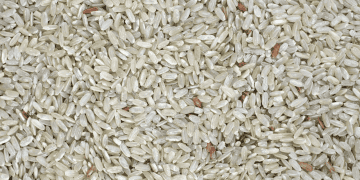Thailand’s rice export sector is poised for a significant boost as the Thai baht continues to weaken. The currency’s depreciation is anticipated to make Thai rice more competitive on the global market, thereby increasing demand from international buyers.
According to industry experts, the weakening baht has made Thai rice cheaper compared to rice from other exporting countries. This price advantage is expected to help Thailand regain its status as one of the world’s leading rice exporters, a position it has struggled to maintain in recent years due to stiff competition and fluctuating market conditions.
The Thai Rice Exporters Association has expressed optimism about the situation. The association’s president noted that the baht’s depreciation could help Thailand export up to 8 million tonnes of rice this year, a substantial increase from previous projections. He also highlighted that major importers, such as China, the Philippines, and African nations, are likely to increase their purchases of Thai rice due to the favorable exchange rate.
Additionally, the association has called on the Thai government to support the sector by providing incentives and implementing policies that could further enhance the competitiveness of Thai rice in the international market. Measures such as reducing export fees and improving logistics infrastructure were suggested to help exporters capitalize on the current favorable exchange rate.
While the weakening baht presents an opportunity for Thai rice exporters, industry leaders caution that it is crucial to address other underlying issues to sustain long-term growth. These issues include improving the quality of rice, adopting advanced farming techniques, and ensuring a stable supply chain. By addressing these challenges, Thailand can not only boost its rice exports in the short term but also secure a more robust position in the global market in the long run.
The Ministry of Commerce has echoed the industry’s optimistic outlook, predicting that the value of rice exports could reach an estimated 130 billion baht this year, up from 110 billion baht last year. The ministry also noted that the global demand for rice is expected to remain strong, driven by population growth and the increasing popularity of rice-based diets.
In conclusion, the weakening Thai baht presents a significant opportunity for the country’s rice export sector. With strategic support from the government and continued efforts to improve quality and efficiency, Thailand is well-positioned to enhance its presence in the global rice market and achieve substantial growth in its export volumes.
Get the latest supply chain report news insights at The Supply Chain Report. For international trade resources, visit ADAMftd.com.
#ThaiRiceExports #WeakeningBaht #RiceExportBoost #ThailandRice #CurrencyDepreciation #GlobalMarket #RiceExportGrowth #ThaiRice #ExportOpportunities #RiceTrade #InternationalBuyers #AgricultureEconomics #ThaiEconomy #ExportProjections #RiceMarketTrends















